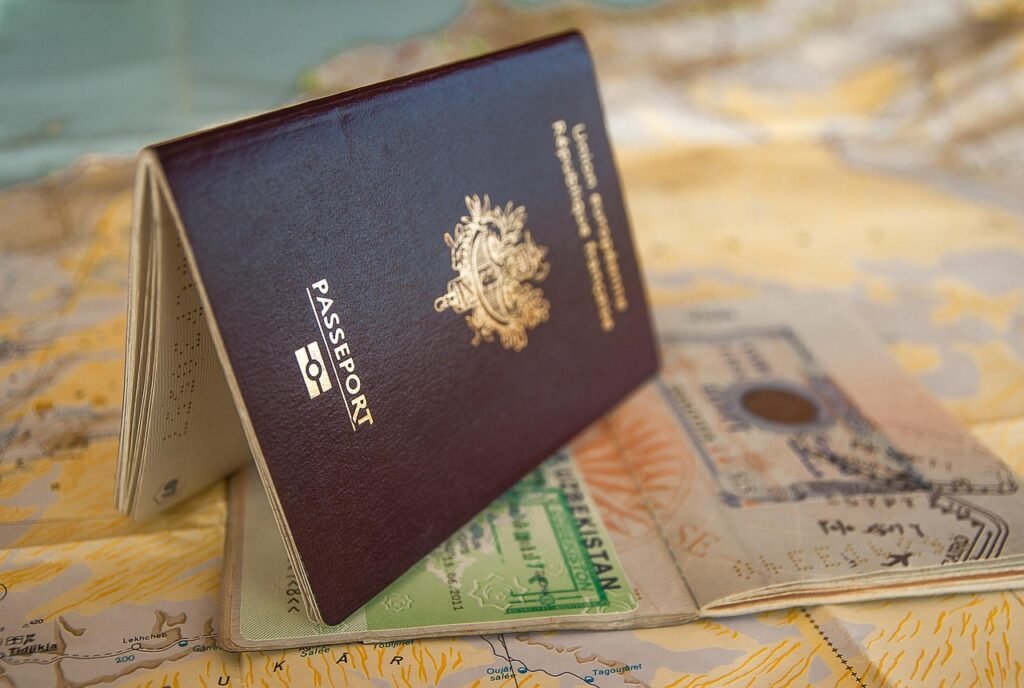Why Study in Spain?
Spain offers high-quality education combined with a rich cultural experience and a welcoming lifestyle. With a growing number of English-taught programs, Spanish universities are becoming increasingly attractive to international students. Tuition fees are generally affordable compared to other Western European countries, and the cost of living is relatively low.
Students in Spain benefit from world-renowned academic institutions, diverse course options, and the opportunity to learn or improve their Spanish—a major global language. Studying in Spain also opens doors to exciting career prospects across the EU and provides various post-study residence and employment pathways in a dynamic, innovative economy.

- Study in
Spain
Study Programs in Spain
Study Programs in Spain for International (including Bangladeshi) Students:
Schooling / Primary & Secondary Education
Available through public, private, and international schools. International and bilingual schools offer globally recognized curricula like the IB (International Baccalaureate), British, or American systems. Tuition fees apply in private institutions.
Diploma & Vocational Programs
Spain offers various diploma and vocational education and training (VET) programs through “Formación Profesional” (FP) institutions. These focus on practical, job-oriented skills in fields such as hospitality, tourism, IT, fashion, and healthcare.
Bachelor’s Degrees
Public and private universities in Spain offer a wide range of undergraduate programs. While most are taught in Spanish, a growing number of English-taught bachelor’s degrees are available, especially in business, economics, engineering, and international relations.
Master’s Degrees
Spain is popular for its affordable and globally recognized master’s programs, many of which are taught in English. Key fields include business (including MBA programs), engineering, design, hospitality, law, data science, and renewable energy.
PhD Programs
Doctoral studies in Spain follow the European Higher Education Area (EHEA) framework and are offered by top research universities. PhD candidates often work under funded research projects and can find opportunities in science, technology, health, and social sciences.

- Study in
Spain
Step-by-Step Guide
🇪🇸 Step 1: Research Universities and Programs
Explore Spanish universities offering English-taught or Spanish-medium programs. Identify institutions that align with your academic background and career goals. Focus areas include business, engineering, hospitality, and social sciences.
🇪🇸 Step 2: Check Eligibility Requirements
Review academic prerequisites, language requirements (IELTS/TOEFL for English programs or DELE/SIELE for Spanish), GPA criteria, and specific subject requirements for your chosen program.
🇪🇸 Step 3: Prepare and Submit Applications
Apply directly through the university’s portal or Spain’s centralized platform (for some institutions). Submit required documents: transcripts, CV, motivation letter, recommendation letters, and language test results. Translate all documents into Spanish (or English, if accepted).
🇪🇸 Step 4: Explore Scholarships & Funding Options
Check for scholarships such as Erasmus+, MAEC-AECID, or university-specific funding. Some private organizations also offer grants for non-EU students.
🇪🇸 Step 5: Receive Offer and Accept Admission
Once admitted, follow the university’s instructions to confirm your seat. Pay any registration or tuition fees as required to secure your place.
🇪🇸 Step 6: Apply for Student Visa (Type D)
Apply for a Spanish student visa at the Embassy of Spain in Dhaka. Submit your acceptance letter, financial proof (bank statement showing funds to cover tuition + €600–€700/month for living expenses), medical certificate, and police clearance.
🇪🇸 Step 7: Arrange Accommodation and Insurance
Book your student housing or private accommodation. Purchase valid health insurance covering your entire stay in Spain.
🇪🇸 Step 8: Plan Travel and Arrival
Once you receive your visa, book your flight. Keep all documents (visa, admission letter, proof of funds, accommodation details) ready for immigration checks. Attend any pre-departure sessions, if offered.

- Study in
Spain
Explore Our Partner Universities
Ascencia Valencia
Ascencia Valencia Spain
Ascencia Valencia, Valencia
Aura Labor
Barcelona Technology School
Cursos Internacionales De La Universidad De Salamanca, S.A.U.
Ecotur School
ESEI International Business School
EU Business School Barcelona
European school of economics Madrid
GBSB Global Business School Barcelona
GBSB Global Business School Madrid
Geneva Business School
Hotel Escuela Ecotur
International Hotel Management & Gastronomy School (IHMGS)
International Hotel Management Gastronomy School
International House Madrid S.A.
Paraninfo Language School Spain
Spanish Institute for Global Education


- Study in
Spain
🇪🇸 Average Tuition Fees in Spain (2025)
Primary & Secondary School (International Schools)
€4,000 – €12,000 per year
International schools offering British, American, or IB curricula charge tuition. Public schools are free but usually teach in Spanish or regional languages.
Bachelor’s Degree (Public Universities)
€750 – €3,500 per year
Fees vary based on region, university, and program. Humanities are usually cheaper, while engineering and health sciences may cost more.
Master’s Degree (Public Universities)
€1,000 – €4,000 per year
Highly affordable compared to other Western European countries. Many English-taught options available in fields like business, hospitality, design, and tech.
PhD Programs (Public Universities)
€500 – €1,500 per year
PhD programs are cost-effective, and some positions are funded through university scholarships or research contracts.
Private Universities / Business Schools (All Levels)
€6,000 – €20,000+ per year
Tuition is significantly higher than public institutions. Prestigious business schools may charge over €25,000 annually for MBA programs.
Visa Categories for Study in Spain

Short-Term Student Visa (Type C – Schengen Visa)
For studies or training lasting less than 90 days. Suitable for short courses, exchange programs, or language training.

Long-Term Student Visa (Type D – National Visa)
For studies exceeding 90 days

Residence Authorization for Studies
Granted after entering Spain with a Type D visa. Renewable annually based on academic progress.

Visa Application Checklist
Spain Student Visa Application Checklist (Bangladesh)
1. Completed Application Form
Filled out and signed student visa application form (National Visa – Type D) available from the Spanish consulate or embassy website.
2. Valid Passport
Must be valid for at least 3 months beyond your intended stay in Spain and have at least two blank pages.
3. Admission Letter
Official acceptance letter from a recognized Spanish educational institution, confirming full-time enrollment.
4. Proof of Financial Means
Bank statements, sponsor letters, scholarship proof, or financial guarantee showing sufficient funds to cover tuition, living expenses, and return travel (approx. €600–700/month recommended).
5. Proof of Accommodation
Documents showing where you will stay in Spain — rental agreement, dorm confirmation, or host invitation with address.
6. Passport Photos
Recent color passport-sized photographs meeting Spain’s visa photo specifications.
7. Travel Itinerary
Flight reservation or detailed travel plan (not mandatory but helpful).
8. Health Insurance
Valid health insurance covering your stay in Spain with a minimum of €30,000 coverage (must be valid in the Schengen area).
9. Academic Certificates and Transcripts
Copies of previous degrees, diplomas, and academic transcripts.
10. Language Proficiency Proof
If required by the institution, provide proof of language proficiency (Spanish or English), such as DELE, IELTS, or TOEFL scores.
11. Police Clearance Certificate
Certificate of good conduct issued by the Bangladesh Police, legalized and translated into Spanish.
12. Medical Certificate
Issued by an authorized doctor stating you are free from any disease that may pose a public health risk, translated into Spanish.
13. Parental Consent (If under 18 years old)
Notarized parental authorization for minors traveling alone or with one parent, translated into Spanish.
14. Payment Receipt of Visa Fee
Proof of visa fee payment (approx. €60–€75 or local equivalent in BDT).
15. Biometric Data Submission
Schedule and complete biometric submission at the Spanish Embassy in Dhaka or designated VFS Global centre.
Additional Notes:
All documents must be translated into Spanish by a certified translator if not originally in Spanish.
Originals may be requested during the visa interview.
Photocopies of all documents should be prepared as per embassy requirements.

- Study in
Spain
Job and PR Pathways After Study
🇪🇸 Job and PR Pathways After Study in Spain
1. Job Search Visa (Estancia por Estudios con Búsqueda de Empleo):
After completing a recognized degree in Spain, international students can apply for a job search residence permit valid for up to 12 months. This allows graduates to stay legally in Spain while searching for a job or starting a business related to their studies.
2. Employment Opportunities:
Spain offers job opportunities in sectors like tourism & hospitality, IT, engineering, business services, and education. Fluency in Spanish is highly advantageous, but English-speaking roles exist in multinational companies, especially in major cities like Madrid, Barcelona, and Valencia.
3. Work Permit (Residence and Work Authorization):
Once you secure a job offer, your employer can apply for a work permit on your behalf. The job must be relevant to your qualifications and meet Spain’s salary and labor requirements. Alternatively, you may apply to switch to a self-employment permit if starting your own business.
4. Permanent Residency (Residencia de Larga Duración):
After 5 years of continuous and legal residence in Spain (including time spent under a student visa, if conditions are met), you may qualify for long-term residency. This allows you to live and work in Spain with fewer restrictions.
5. Pathway to Spanish Citizenship:
After 10 years of legal residence in Spain (or 2 years for citizens of Latin America, the Philippines, Andorra, or Equatorial Guinea), you may apply for Spanish citizenship. Applicants must demonstrate integration, including Spanish language skills and knowledge of Spanish society and laws.

- Study in
Spain
Our Support During the Process
We’re with you at every step — from your first consultation to settling into life in Spain and beyond, ensuring a stress-free, informed, and successful journey.
Personalized consultation at every stage — We take the time to understand your academic goals, financial situation, and personal preferences to guide you toward the best-fit study options in Spain.
One-on-one support for admission, visa, and travel — Dedicated assistance with university applications, document preparation, student visa submissions, and travel arrangements.
Always accessible — Connect with us via call, WhatsApp, email, or in person — whatever suits you best.
Regular updates, reminders, and document reviews — Stay on track with timely updates, important deadline reminders, and careful review of your documents to avoid errors or delays.
Post-arrival check-ins and alumni mentoring — We stay connected after you arrive in Spain, offering ongoing support and linking you with alumni who’ve successfully made the journey.
Support for job search and PR planning — Guidance on job opportunities in Spain, CV/resume building, and advice on post-study work permits and long-term residency pathways.






